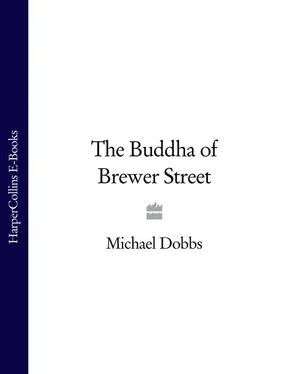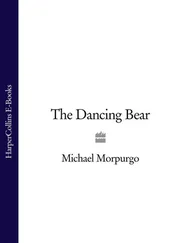Kunga had never seen a weapon bigger than a rifle, and most of those he’d seen were ancient, single-shot affairs left behind by Younghusband and the British. Nothing like that could break down the great gates to the monastery, and there was no chance the officer’s scraggy mule could kick them down. It seemed simple, the Chinese could sit outside and stew until the next Losar holiday. So the argument continued with the abbot disputing the point, much as he was accustomed to do in the formalized debates that were held within the courtyard. But the officer appeared to be taking little further interest. Perhaps, thought Kunga, he had accepted that he’d lost the argument and was looking for a means of withdrawing from his position. The officer was gesticulating, but not in the proper manner of courtyard debates. The Chinaman didn’t seem to know the rules, Kunga thought contemptuously.
But in Tibet, the Chinese made up their own rules.
As the boy watched, a soldier knelt on the far side of the bridge and put something to his shoulder that was considerably larger than any rifle. He raised it, seemed to take aim. Then, with a single grenade, the soldier reduced the abbot’s arguments and the great monastery gates to matchwood.
With a ferocious cry the troops threw themselves across the narrow bridge, their boots pounding upon the wooden boards like the clatter of machine guns. They swarmed into the central courtyard, forcing the monks back with rifle butts and impatient boots. But there was no resistance.
High on the monastery wall, Kunga Tashi discovered that his youthful bravado had been left in pieces along with the gates. He found he couldn’t move. His senses had been dragged away in terror while his body was left frozen and far behind. Below him in the courtyard, events were unfolding in what appeared to be a new and altogether different world. It was a world unknown to Kunga, of disharmonies and great dangers, but it was a world through which he would have to pass. He had risen that morning a mere boy, not fully formed, inexperienced. Come the night he would have changed, grown. If he still lived. The great Wheel of Life was turning.
Once the courtyard had been secured the officer, now dismounted, strode into its middle. Behind him was dragged the abbot – quite literally dragged, his arms tied in traditional Chinese style, diagonally behind his back, which made standing very difficult. It required only the lightest prod of the officer’s riding crop to force him to his knees upon the time-sanded stone. A growl of objection rose from the monks, quickly extinguished by a few well-directed rifle butts. The abbot began to recite a mantra, trying to focus his mind elsewhere, but before he could utter more than a few syllables the leather riding crop was under his chin, forcing his head back and exposing his throat like a whipped dog. The officer said not a word, simply allowing the abbot time to contemplate his own extreme vulnerability. For many painful moments the abbot was held there, neck stretched, shuddering, until the whip was removed and his head fell forward in submission.
A rough-hewn wooden bowl was produced, one of the bowls from which the monks normally ate their staple diet of ground barley tsampa , and was placed on the flagstones directly in front of the kneeling abbot. Then, with almost comic arrogance considering his short stature and the action he was taking, the officer unbuttoned his trousers and proceeded to piss into it, allowing the stream of water to rise and fall but never to miss its target, until the bowl bubbled and steamed in the ice air and eventually overflowed.
Two soldiers picked up the bowl and put it to the abbot’s lips.
Kunga wanted to shout at the top of his lungs, to scream his outrage at the wickedness of the Chinese invaders, and he took a deep breath, so sudden that the back of his throat burned. But no sound came. He noticed he was trembling, and not from the cold.
The abbot shook his head in disgust, trying to spill the bowl and its contents, but both the bowl and its contents came back. A second time he wriggled, trying to thrust the foulness away from him, but once more it was brought back to his lips and this time the crop was beneath his chin, forcing his head back again, stretching the vulnerable neck, until his eyes stared directly to the heavens with his lips prised apart.
And they poured until the liquid spilled down his chin and stained his robes.
Still the officer said nothing. He was bored with debate, with words. He didn’t need words to put a Tibetan in his place, only a mule crop and a bowlful of Chinese piss.
The abbot slumped forward, retching. The officer strode around behind him. He had not been long in this uncomfortable world of Tibet and he didn’t care for it, this frozen, relentless land, full of strange disease. And a very long way from his family in Chungking. He had no particular dislike for the ordinary Tibetans, even though they were stubborn, with their strange superstitions and miserable food. But their monks were worthless. They contributed nothing, parasites who lived off the labour of others. And now far, far worse. They had started killing Chinese. They had left the administrator in Nagormo in so many pieces that his wife wouldn’t be able to bury anything other than scraps. So it must be brought to an end, all this bloodshed, before it spread like rats through a harvest. Otherwise he and his troops would never get back to Chungking.
As the sun rose above the monastery walls, the officer’s shadow scythed across the bowed figure of the abbot. The Tibetan was an old man, shaven headed with skin like the husk of a walnut. Harmless, in his own way, the soldier thought, and perhaps even innocent. But what did innocence matter? It was his very existence that posed the threat. No, all this had to stop, right here.
The officer cleared his throat. It was the only sound he had made since entering the monastery. His mind was made up. For the peace of the community, the good of the many. The Chinaman raised his arm, which he stretched out stiff before him, pointing. Then he put a bullet through the back of the abbot’s head.
The two worlds between which Kunga had floated, the one inside him and the one that was laid out before him in the courtyard, suddenly collided and broke into a million fragments. All around him there were screams, cries of pain and fear, the sounds of destruction. And shots. The narrow stone alleyways of the monastery filled with the frantic slipping and scraping of the monks’ soft leather sandals as they tried to flee, pursued by the pounding of steel-tipped boots. Wherever there was resistance, and particularly the pernicious resistance of prayer, a single monk was set upon by three, four, sometimes six soldiers, breaking him with boots and blows from their rifles. Then they moved on to the next.
Nothing was to remain. Brocade-mounted thanka paintings were ripped from walls they had adorned for generations, precious buddha images were broken, every one of the monastery’s effigies of compassion was crushed underfoot. This was not simply punishment, it was to be persecution.
Behind one door the soldiers discovered a hall filled with endless shelves laden with leather-bound books and parchment scrolls and ancient wooden printing blocks. The library. It contained nearly a thousand years of learning and memories. It was destroyed in as many seconds.
As the library was put to the torch a spiral of glowing ashes and smoke rose from the flames and spread across the sun. Beneath its wrathful shadow the soldiers began herding the monks who could still walk across the narrow bridge. An ancient librarian-monk, a rifle butt at his back, cried in anguish and fell to his knees, his toothless mouth praying for strength. The guards swore at him. They were about to set upon him when he rose unsteadily to his feet and with stubborn care began brushing the dust from his robes. They shouted at him to move on, but he shook his head. ‘Everything is impermanence,’ he said, uttering the last words of the Great Buddha himself. For one lingering moment he looked back to the monastery that had been his world for a lifetime, perhaps several lifetimes. His old eyes brimmed with gratitude. Then he walked to the side of the bridge and stepped off into eternity.
Читать дальше












